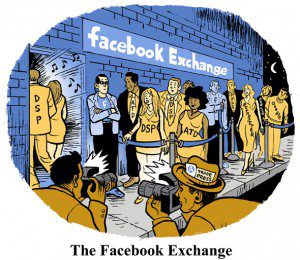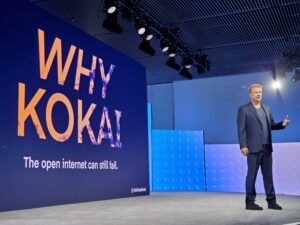Over the weekend, an error in Meta’s ad management system caused an enormous headache for advertisers.
By some estimates, Meta’s automated systems overspent on overpriced inventory by tens of millions of dollars during the early hours of Sunday morning across Facebook and the Audience Network.
Meta has acknowledged through sales reps that the issue stemmed, at least in part, from the web-to-app optimization product, according to four advertisers who spoke to AdExchanger. But that misfire was coupled with other problems, including the failure of cost-capping controls, which are the rules advertisers set for what they’ll pay for a given impression or conversion. Something also went wrong with Meta’s bidding tech since near-worthless impressions were selling at huge CPMs.
Beyond a failure of its systems, Meta has also failed to mount an effective response to the issue, leaving advertisers confused about the details and unclear on whether they’ll receive refunds.
The platform has been experiencing ad-related glitches since last year, including issues with its attribution technology and customer service issues in the wake of mass layoffs.
This most recent problem is rather complicated because it involves an understanding of the minutiae of how the Meta ad platform is used.
Why daily budget is so much more
Advertisers typically set relatively high daily budget caps.
If you sell bedding and Matthew McConaughey happens to mention in a TV interview that he loves your pillowcases, there’s going to be a flood of traffic that converts at a very high rate.
Advertisers therefore can’t treat daily budget caps as the amount they intend to spend on a given day because you could go viral on TikTok and get so many cost-effective conversions that you still end up blowing past your daily budget.
In that case, do you want an arbitrary rule in place that pulls the brakes when unexpected magic happens?
At least, that’s how Meta would no doubt frame it.
Advertisers balance high daily budget caps with very tight cost cap controls. A brand might have a rule saying it will pay no more than $20.80 per conversion. And because there aren’t that many people who convert at that price, brands can effectively keep their daily budgets much lower than the budget cap.
Past the cap
Sunday’s glitch was partially tied to a malfunction of Meta’s app-to-web optimization tool.
But Meta also stopped applying cost-capping controls, which caused advertisers to quickly reach and then exceed their daily budgets by 25%.
This is only supposed to happen during a perfect storm of terrific earned media and effective marketing, whereby conversions are pouring in at profitable rates. Yet, on Sunday, it happened for no reason.
Many ecommerce merchants and SMB advertisers treat the daily budget cap as an amount they’d “be uncomfortable paying” even if they knew they were making money on the incoming sales, which is how one agency CEO explained it to AdExchanger.
The cap can be 10 to 20 times what an account would budget for the day, even on a high-spending day.
One advertiser with a $50,000 daily budget cap typically spends $2,000 to $3,000 on Meta ads on a Sunday, per data shown to AdExchanger. He said if the daily report on Monday showed a $5,000 spend from the day before, the brand would look into what the spike was about.
This past Sunday, he checked his phone at 9 a.m. to see frantic messages from the social media agency, because the account had spent $60,000 that morning and there were no conversion metrics or site traffic to speak of.
If the business reached its $50,000 daily budget threshold with the cost caps applied, the marketer said they would expect hundreds of thousands of dollars in cash flow to be following close behind, because the campaign should be converting sales only at the pre-set rates. Now, there’s just a $60,000 hole in the budget.
Meta’s ad system is authorized to spend up to 125% of an advertiser’s daily budget, said one agency exec. But because of the nature of this error, Meta has now captured a huge chunk of its advertisers’ liquid funds.
For many small- and medium-sized businesses in particular, Meta overspending their caps has put them in a major payment bind. They would only have spent that much on ads with the expectation of large checks rolling in shortly thereafter.
“This is much worse than, ‘Oh, crud, a day with no ROI,’” the agency exec said. “Thousands of Meta small business advertisers are now in, like, ‘Rent or groceries this month?’ mode, and it’s not OK.”

















